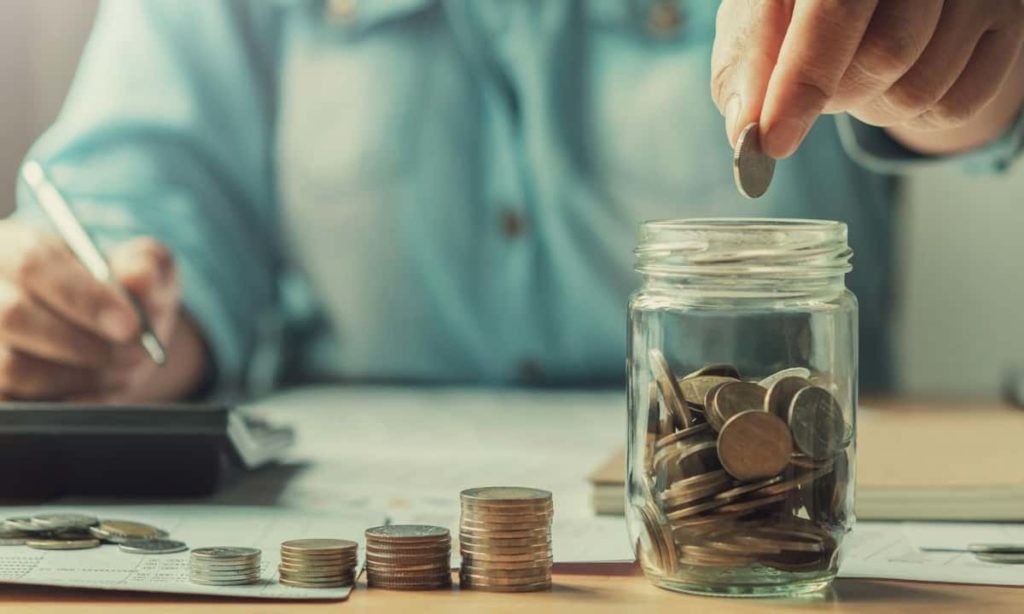In general, broad money advice is hard to give. People have different personalities, incomes, expenses, support systems, and more.
The nuances of your finances may be complicated, but saving money might not be as complex as you think. Even with a lower income, there are methods you can follow to build up funds little by little.
Read on to discover seven surprisingly simple saving tips that can help you achieve your optimal financial health!
1. Track Expenses

The best way to get a grasp of your financial situation and savings potential is to record your expenses. Write down every single purchase you make, even the dollar pack of gum.
These small things will add up over time. You might not realize how much money is being wasted on things that you don’t need.
Tracking your expenses in great detail will give you a better picture of your spending habits. It can also give insight into where you might improve.
Once you’ve looked at your financial situation for a few months you should be able to identify points of weakness. Use this exercise to see where you could be saving money.
2. Realistic Budget
Creating a budget is the foundation of responsible spending and allotting of funds.
In order to save money, you want to get your budget down as low as possible. Make sure the goal is obtainable. A budget is not useful if unreasonable.
Create your budget with maximum savings in mind. Put aside as much as you can afford a month. Set a goal for how much money you want to have aside by a specific time.
If you don’t have any money left over after bills, food, gas, and other essentials, you might need to get creative to reduce how much you spend.
3. Find Deals
It’s time to start clipping those coupons.
Plan meals with grocery deals in mind. Check out the saver coupons from your grocery store or straight from the manufacturer.
Non-perishables are great to store for future use when they’re at their cheapest. If there’s a super sale on chicken, don’t be afraid to stock up and freeze it.
Beyond food, you should wait to buy necessary items until they go on sale. Even small deals on minor purchases can add up to a surprising amount of savings.
4. Dine-in

Following is one of the greatest money-saving tips that can be offered. If you want to save money, stop eating out at restaurants. Cooking at home can be one of the most effective cost-reducing measures.
You don’t have to cut out the experience of dining out as a whole. Just make an effort to reduce your meals out of the house. Meal planning and prepping may be helpful to set a strategic budget for food.
A piece of advice for the caffeine lovers out there. Invest in a really nice coffee machine and travel cup. These small purchases here and there may not seem like much, but when you add them together they can be startling.
If you were to get a three-dollar cup of coffee every day it would be over 1000 dollars a year. Even having coffee home half of the time would put a substantial amount of change in your pocket.
5. DIY
There’s an opportunity to save when it comes to making things yourself. Household cleaners, self-care products, and more can be made in the convenience of your own home.
Don’t set up the chemistry lab in your basement just yet. Most homemade cleaners and health products are simple to make and have just a few ingredients.
Not only are you going to be able to put some money aside to save, but you’re helping Mother Earth!
6. Put It in the Piggy Bank
One simple way to slowly build up your savings is by setting aside a small amount. Many enjoy the safety features of a bank, but a simple jar will do just fine!
The most passive way to consistently contribute to the funds is to put aside any spare change at the end of each day. A few coins a day may not seem like the most modern savings tactic, but it’s doable for most lifestyles. You’ll be surprised how much you can save without thinking about it.
The corporate version of the piggy bank can be pretty useful in saving too. The real bank is a great place to start if you want to put aside a more substantial amount of money. At the bank, you can open a checking account, browse personal debt consolidation loans, and view savings options.
Plan a certain amount to come out of each paycheck. Use your budget to guide what should be put in savings and what should be available to spend. Try a savings account with interest gains; you’ll make money without even thinking about it.
If you have outstanding loans or hefty credit card payments, check out debt loan consolidation. This is another way to focus your efforts on where your money is going
7. Drop the Memberships
When you track your expenses you may find that you’re spending more on memberships than you realize. Compile a list of the memberships you have and evaluate which ones are necessary. Identify needs versus wants.
Whether it’s a makeup subscription box or a gym membership, make sure that you really want to commit. Not only are there regular payments, but there could be a cancellation fee or a required time lapse.
This isn’t to say that you shouldn’t have the occasional subscription to a streaming service or a pass to a hot yoga studio. It’s about balance.
Think of it this way. Would you rather have the service, or put the money towards your savings goal? If you’re not one hundred percent certain that you prefer the membership, hold off on purchasing it.
Try These Simple Saving Tips

Saving money may be easier than you think. Whether you’re hoping to buy a house, want to further your education, or even relax on a vacation, there are easy changes you can make to start saving.
Be sure to pick a few of your favorite saving tips or try them all!
There’s more where this information came from. Take a peek at the rest of our website for more articles like this!




